Space Solar Energy: a New Source of Energy in the Future?
Article published in the Official “Energy Pres” by the People’s Daily of China(Reporter: Yuewen FU)
How much could the contribution to lower carbon emission be when striving for the development of nuclear energy? Whether the nuclear energy is the economic and clean energy or not? Senior vice president of Space energy Group , nuclear safety and former NASA expert Dr. Feng Hsu questioned the nuclear energy’s economic aspect during the Press Release in Beijing for China International Energy and Environment Summit to be held in Beijing this August. He asserted that any nuclear power station needs huge investment in operational cost, however, the huge cost of disposing nuclear waste and concealing nuclear reactor is not well informed or understood to the general public.
As seemingly a type of low carbon form of energy source Dr. Hsu believes that nuclear power’s contribution to reduce the global carbon emission is very limited. ”400 more nuclear reactors would be needed to replace the carbon emission caused by current energy consumption in the US. The cost would be 1.200 trillion to 2 trillion dollars. From the global scope, 8000 nuclear reactors are needed which should cost the world economy at least 24 trillion dollars and at the same time take at least 30 years to implement if we simply march down to the nuclear road.”
After suffering the 3.11 earthquake, Japan’s Prime minister Kan Naoto declared publicly that Japan would adjust the energy plan and long term development strategy which is currently based on nuclear power. Japan has already kept an eye on solar energy, wind energy and other sources of clean energy before this earthquake. As reported, JAXA launched the plan of utilizing space solar energy in early 2010. This plan would generate a minimum of 10000MW power which is sufficient to supply the need of 0.3 million users in Tokyo. The cost of this plan is 2000billion yen (approximately 21 billion USD).
“Space energy” technology is a unfarmilar term for most of our Chinese people whereas a certain level of development of space energy happens in America, Russia and Japan already. Deputy Director Liming from Space technology research institute of China mentioned that space technology is only used as information provider in China whereas the space solar energy technology can provide mankind energy services. Huge development space will be found in energy field in the future via a technology of launching rockets or space crafts to carry the PV devices to the orbit, receiving and generating solar energy on the orbit, transferring the energy into microwave or laser, transmitting wirelessly to the receiving station on the ground terminal and outputting electrical power to the state grid. Up to now, there are certain developments in wireless transmission of energy in Sichuan University, Space technology research institute of China and other universities and institutions.
“The wireless transmission of space energy can play an important role as an urgent power provider when the state grid goes paralyzed.” Liming stated space solar energy can adopt both microwave and laser technology. Currently Europe and America are working on the microwave technology while Japan is researching and developing laser technology. Liming believes that the progress of developing space based solar power station can not only provide an optional solution for clean energy, but also stimulate new technology revolution especially in promoting low orbit economy lead by space technology and industry.
Dr. Feng Hsu is an active advocator of space based solar power. He was the manager of risk management project in NASA who promoted the research and assessment of space based solar project in space defender department of NASA. He compared space based solar power with nuclear power through quantitative and qualitative methods.
From the comprehensive and systematic assessment of sustainability, the harm generated to the environment, safety, economical efficiency, technical difficulties, commercial effect, risk of misusing and the long term development of mankind these eight aspects, space based solar power is better than nuclear power. Dr. Feng Hsu further emphasized that the risk of nuclear power, given that every nuclear disaster might be caused by different and unexpected reasons. The uncontrollability and destructive ability of using nuclear even enlarged its complexity and risks.
Dr. Xueyan He of a prominent Chinese economist agreed with Dr. Hsu’s views by saying “the development of nuclear power should be readjusted. The proper sequence and direction of energy development should change from developing nuclear power to wind power, tide power and finally space based solar power.”
At the end of this summit, CEES secretary general Professor Zhiqin Lin introduced the blueprint of “China new energy and energy-conserving and environment-protective Summit” which is planned to be held on August 2011. Space Based Solar Power will be a topic of huge importance.
China Energy & Environment Summit has planned to invite Buzz Aldrin—the man who ever stepped on the moon for first time, Guirong Min-- advisor of China space technology research institute, Xiji Wang academician, China national energy, environment, technology and national defense department, University of International Business and Economics, China space technology research institute, Chinese Academy of Science, the Chinese Academy of Social Sciences, Tsinghua University, the International Association for Clean Energy, National Science Foundation, U.S. Department of Energy National Research Center, New York University, the European Space Energy Group, the NASA Outstanding Technical Achievement Award honorees and other top domestic and foreign experts and scholar to discuss issues of China's new energy and energy saving.
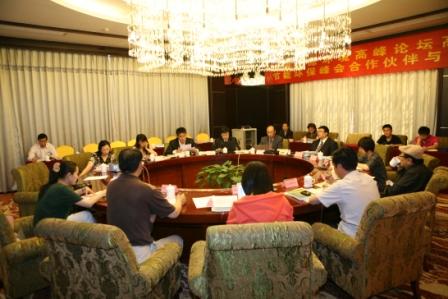
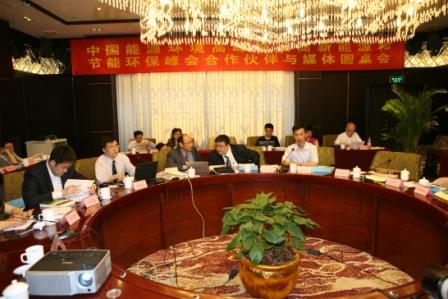
Roundtable Venue
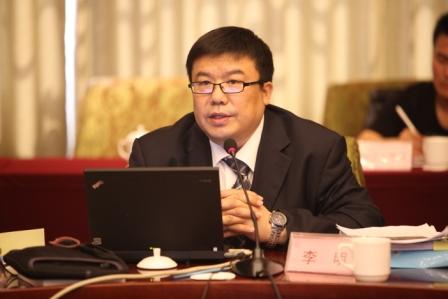
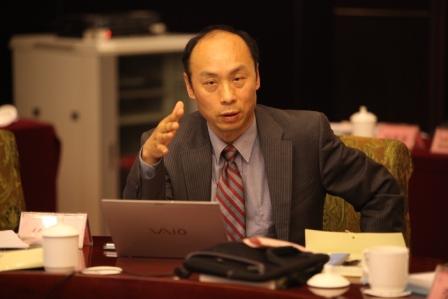
Speech by Dr. Feng Hsu,Senior vice president of Space energy Group , nuclear safety and former NASA expert
Speech by Prof. & Deputy Director Liming from Space technology research institute of China
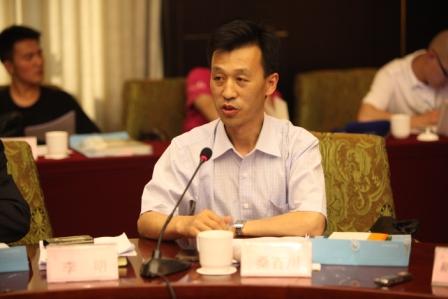
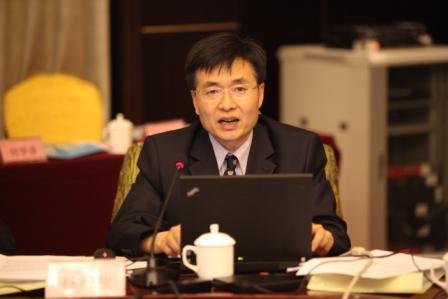
Speech by Prof. & Dean,Baichuan Sang, International Economic Institute, UIBE Chair by Prof. Zhiqin Lin , CEES secretary general
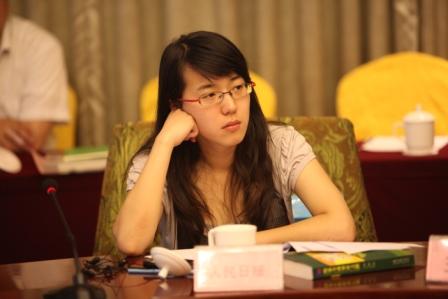
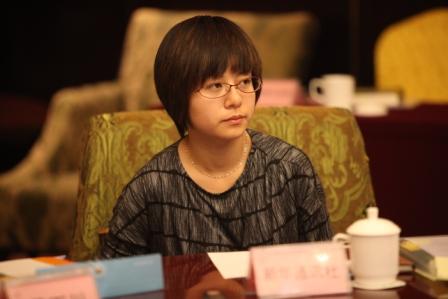
Question by Yuewen Fu, reporter of the People’s Daily of China Question by Xiaohui Li, reporter of Xinhua News Agency